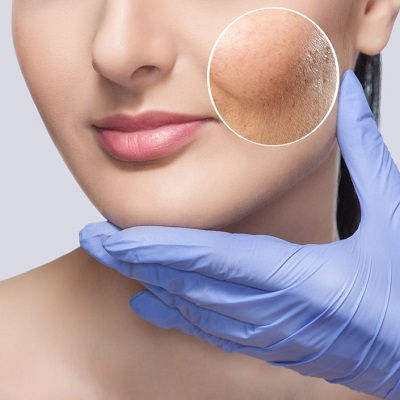Unveiling Clear Skin: Effective Acne Scar Treatment Options
- iraj44835

- Nov 13, 2023
- 2 min read
Acne scars can be a persistent reminder of past breakouts, impacting self-esteem. Fortunately, several effective treatments exist to minimize and even eliminate these scars, providing hope for clear and smooth skin. In this blog post, we'll explore various acne scar treatment options to help you make informed decisions about achieving radiant, scar-free skin.
Understanding Acne Scars: Before delving into treatments, it's crucial to understand the different types of acne scars. Common types include atrophic, hypertrophic, and ice pick scars. Each requires a tailored approach for effective treatment.
Topical Treatments: a. Retinoids: These derivatives of vitamin A promote cell turnover, aiding in the fading of acne scars over time. b. Vitamin C Serums: Known for their antioxidant properties, vitamin C serums can help brighten and reduce the appearance of hyperpigmented scars.
Chemical Peels: Chemical peels involve the application of a chemical solution to the skin, causing it to exfoliate and peel off. This process stimulates collagen production, reducing the appearance of acne scars. Popular options include glycolic acid and salicylic acid peels.
Microneedling: Microneedling, or collagen induction therapy, involves the use of tiny needles to create controlled micro-injuries in the skin. This stimulates collagen and elastin production, promoting smoother skin texture and reducing the visibility of scars.
Laser Therapy: Laser treatments, such as fractional laser therapy, target the deeper layers of the skin to stimulate collagen production. This helps improve skin texture and reduce the appearance of scars. Different lasers may be used based on the type and severity of scars.
Dermal Fillers: Injectable fillers, like hyaluronic acid, can be used to fill in depressed scars, providing a smoother skin surface. While this is a temporary solution, it can be a quick and effective way to improve the appearance of certain types of acne scars.
Platelet-Rich Plasma (PRP): PRP therapy involves drawing a small amount of the patient's blood, processing it to concentrate platelets, and then injecting it into the skin. The growth factors in PRP can stimulate tissue regeneration and improve the overall texture of the skin, including acne scars.
Professional Skincare Regimen: Establishing a consistent skincare routine with products containing ingredients like niacinamide, alpha hydroxy acids (AHAs), and peptides can support the overall health of the skin and aid in scar reduction.
Conclusion:

Choosing the right acne scar treatment depends on factors such as the type and severity of scars, as well as individual skin characteristics. Consulting with a dermatologist or skincare professional is crucial to determine the most suitable approach for your specific needs. Remember, achieving clear and smooth skin is a journey, and with the right combination of treatments, you can unveil the radiant complexion you deserve.
For more information visit Dynamic Clinic PK



Comments